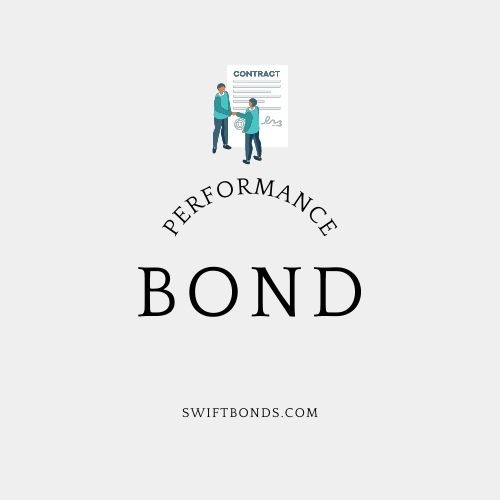You can now apply online for a Performance Bond - it only takes three (3) minutes! (Yep, we timed it.) Click here:
Or you Can download our Express Performance Bond Application (click to download form)
- Complete the form and email to [email protected]
- Be sure to include the Contract and Notice of Award letter (bid specs from the obligee).
- Send the bid results if you have them

Contractors must meet specific performance bond requirements, which include financial thresholds, certification criteria, and necessary documentation, to secure surety bonds for construction projects. Performance bonds guarantee the completion of projects according to contractual obligations, ensuring that contractors fulfill their agreements and protecting project owners against contractor failure.
Discover who pays for payment and performance bond to safeguard your project’s financial security today.
Introduction to Performance Bonds
Performance bonds are a critical component in the construction industry, providing a safety net for project owners and ensuring that contractors fulfill their contractual obligations. These bonds act as a financial guarantee, protecting the project owner from potential losses if the contractor fails to complete the project as agreed. Understanding performance bonds can help both contractors and project owners navigate their construction projects with confidence and security.
What is a Performance Bond?
A performance bond is a type of surety bond that guarantees a contractor will complete a construction project according to the terms of the contract. This bond provides financial protection to the project owner, ensuring that if the contractor fails to fulfill their obligations, the project owner will not suffer financial loss. Performance bonds are essential in maintaining trust and accountability in construction projects, offering peace of mind to all parties involved.
Definition and Purpose
A performance bond is a three-party agreement involving the contractor (principal), the project owner (obligee), and the surety company. The surety company provides a guarantee to the project owner that the contractor will complete the project according to the contract terms. The primary purpose of a performance bond is to ensure that the project is completed on time, within budget, and to the required standards. This bond acts as a safeguard, protecting the project owner from potential financial losses due to contractor non-performance.
Parties Involved in Performance Bonds
There are three key parties involved in a performance bond:
- Principal (Contractor): The contractor is the party responsible for completing the construction project. They are the ones who obtain the performance bond to assure the project owner of their commitment to the project.
- Obligee (Project Owner): The project owner is the party that requires the performance bond. They seek this bond to ensure that the contractor will complete the project according to the agreed terms and conditions.
- Surety Company: The surety company is the entity that provides the performance bond. They guarantee the contractor’s performance, stepping in to fulfill the contractor’s obligations if the contractor fails to do so.
Understanding the roles of these parties helps clarify how performance bonds work and why they are essential in construction projects.
Types of Performance Bonds
There are several types of performance bonds, each serving a specific purpose:
- Construction Performance Bonds: These bonds are specifically designed for construction projects. They guarantee that the contractor will complete the project according to the contract terms, providing financial protection to the project owner.
- Payment and Performance Bonds: These bonds combine the features of a payment bond and a performance bond. They offer protection to both the project owner and the subcontractors and suppliers, ensuring that everyone involved in the project gets paid and that the project is completed as agreed.
- Contract Bonds: These bonds are used to guarantee the performance of a contractor on a specific contract. They ensure that the contractor will fulfill their contractual obligations, providing peace of mind to the project owner.
By understanding the definition, purpose, and parties involved in performance bonds, contractors and project owners can better navigate the process of obtaining and using performance bonds to ensure successful construction projects.

How to release a Performance Bond?
To release a Performance Bond, call the bonding company and inform them that you no longer need it. Fill out their bond release form when they send it to you and return it back with your signature.
You've been awarded a contract and need to release your performance bond.
The process of releasing a performance bond can be confusing, but it doesn’t have to be. Surety companies play a crucial role in the release process by assessing the risk and providing the necessary documentation. Swiftbonds is here to help you through the process so that you don’t get stuck in red tape or lose money on unnecessary fees.
With Swiftbonds, there are no hidden fees or surprises waiting at the end of your journey – just straightforward service from start to finish. Our goal is always 100% customer satisfaction!
this right now and fill out our contact form online!
When can you release a performance bond?
Generally, as a rule, the performance bond (or bid bond) remains in force until either after practical completion of the works or making good any defects. If the contractor fails to meet the requirements, a performance bond claim can be filed, and this claim must be resolved before the bond can be released. Read about How to calculate a Performance Bond?
What does it mean to release a performance bond?
If you need a payment guarantee bond to guarantee your trade license or contract, it's important that when the purpose for the bond is no longer necessary, you release it and any property used as collateral.
Should I get a performance bond?
Performance bonds offer many advantages for all parties involved. Contractors can increase their marketability and safety through performance bonds, as well as the issuer who is able to garner a new client in construction season which may be an ideal time. Learn this How to be released from a Performance Bond?
Where do you get a performance bond?
A performance surety bond is a guarantee from the surety agency that an investment will be upheld and satisfactory completion achieved. Contractors can obtain these bonds from banks or insurance companies, which act as sureties to ensure all requirements are met in full. This type of bond can only be issued by these institutions.
How do I cancel a performance bond?
The obligee has to provide the final sign-off. Court bonds cannot be cancelled by the principal or surety, but only a court can cancel it with their signature and seal on an official release form declaring that bond is no longer necessary.
Do you get your performance bond money back?

Who pays for a performance bond?
When you violate the terms of your bond, it is very likely that you won't get any money back for the bonds paid. If a person fails to complete their task according to contract, then the surety (who puts up a financial guarantee) will step in and take care of expenses caused by this failure.
What is a 50% performance bond?
Performance bonds are agreements that protect the owner of a project in case something goes wrong with it. This is why they're typically 50% or 100%, respectively, of the cost to complete said project. See this How Should a Performance Bond be Reflected in a Project Bid?
What happens when a performance bond claim is called?
When a performance bond is called, it provides assurance to the obligee that if the principal fails to perform their bonded contract they will be protected. Surety bonds, including performance bonds, provide a guarantee that the contractor will fulfill their obligations, protecting the project owner from financial loss. If an obligation declares them in and terminates the contract, they can call on their surety to meet its obligations under this bond.
Performance bonds are typically provided by financial institutions such as banks and insurance companies. The party providing the service under an pays for their respective bond, which can be common in industries like construction contract bond or real estate development.
How long does a performance bond last?
How long can I hold on to my bond? It is important that you know the renewal time for your particular type of performance bonds. If it does not renew at all, then you might be able to obtain a lower rate when it comes up again or if there are other opportunities in between.
Is it hard to get a performance bond?
The performance bond is not too difficult to obtain, and it does not need a bid bonding. The only time you would have the chance of picking up this surety is if your company bids on the project successfully. Idea about How Much Should I Pay for a Performance Bond in Construction?
It costs less than 1% of the contract price to get a performance bond most times, but it can cost more depending on how good your credit rating is. Labor and are common companions to the performance bond.
What triggers a performance bond?
It is usually issued to one party of the contract as guarantee against failure on behalf of the other party to meet obligations specified in the contract. A contractor's insurance company will often provide for this type of protection, and it can be seen as an invitation by a project owner that they are anticipating delays or non-performance from their team member.
Be sure to check out more at Swiftbonds.com

